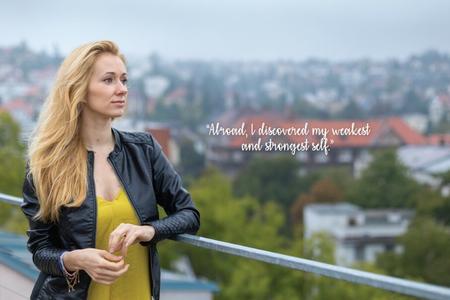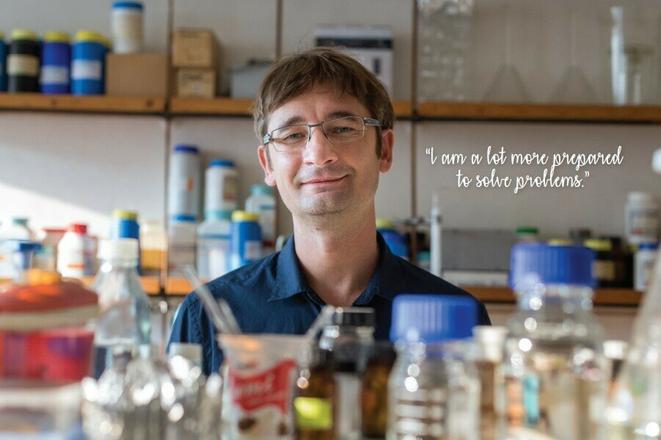When I first came back it was really tough
The institutional infrastructure was lacking. The labs were ill-equipped. The salaries were exceedingly poor. I started to think about leaving the country again in order to continue doing science.
But, things took a turn for the better
It was also a question of good timing. Structural funds from the European Union were just becoming available. The Institute of Chemistry at the Slovak Academy of Sciences received 4 million euros for development.
I won a prestigious ERC grant worth 1.2 million euros

We got a lot of press coverage in the Slovak media and as a result, I was able to attract good talent - team-members who wanted to be part of this new research initiative.
We used the funds to secure the best possible equipment
Today, our machinery is comparable to or better than top ranked research facilities. It’s also attractive for top Austrian scientists, who come to conduct experiments at our institutions.
Thanks to the foreign grant, I can now pay myself and others a fair salary
I work with five PhDs and can rank them among some of the best I met in Oxford. They are excellent, hardworking, but also grateful to work on good science in Slovakia.
In the field of science, research is also about collaboration

International experience is essential. Abroad, you gain new experiences, but you also acquire new contacts. Working on international projects, you earn a higher salary than you would just doing science in Slovakia.
You realise that you can compete
When I was in Sweden, I did not really compare myself. Once I moved to Oxford, I started to look around. It was nice to know that I was on par with the best and I could help guide others as a lab leader.
I am a lot more prepared to solve problems
I learned how to rely on myself abroad. As a result, I am more independent and flexible. I do not look to others to solve problems for me. I believe and try to solve them myself.
I am also aware of the international standard
These are all lessons I try to teach to my students. It pays off, since several of them already won various national and international prizes for their scientific achievements.
At home, I can do everything I did in Oxford - maybe even more
I am now the head of the department. The quality of our research is internationally recognised. I am very satisfied with my professional life.
It was an honour to be recognised and receive ‘Scientist of the Year in Slovakia’
This testimony was originally published in Zuzana Palovic’s book, The Great Return. You can learn more about the book as well as Palovic’s own journey as a Slovak migrant that later returned to Slovakia at http://thegreatreturn.eu/.



 Jan Tkac (source: Zuzana Burdanova)
Jan Tkac (source: Zuzana Burdanova)